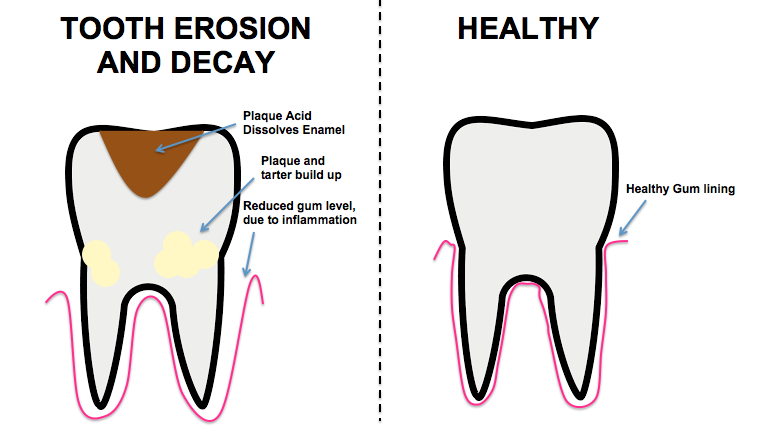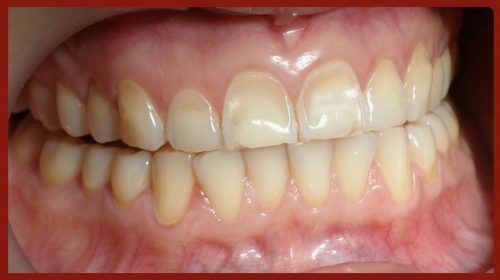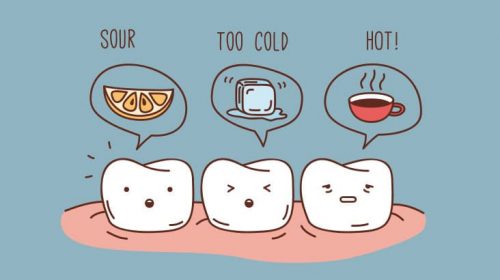Overview
There are several common dental problems that may occur throughout life. The great news, there are several easy to do solutions that may help improve the health of your teeth. Let’s take a glance.
Bad Breath
Bad breath, also known as halitosis, is downright embarrassing. According to dental studies, about 85% of individuals with persistent bad breath have a dental condition that is responsible.
Gum disease, cavities, carcinoma, dry mouth, and microorganism on the tongue are a number of the dental issues that may cause bad breath. Using gargle to cover up bad breath once a dental problem is present can solely mask the odor and not cure it. If you have got chronic bad breath, visit your dental practitioner to rule out any of those issues.

Tooth Decay
Dental decay is the second most common disease in the United States after the common cold. Cavity occurs once plaque, the sticky substance that forms on teeth, combines with the sugars and/or starches of the food you eat. This mix produces acids that attack enamel.

You can get cavities at any age—they are not only for youngsters. As you age, you’ll develop cavities as your enamel erodes. Xerostomia (dry mouth) because of age or medications may also result in cavities.
The best way to prevent dental caries is by brushing twice daily, flossing daily, and going to your regular dental check-ups. Consumption of healthy foods and avoiding snacks and drinks that contain a high amount of sugar are also ways to prevent decay. Your dentist may suggest treatment which will facilitate scale back your risk.
Gum (Periodontal) disease
Gum disease, also called periodontitis, is an infection of the gums around the teeth. It’s also one among the main causes of tooth loss among adults. Some studies have indicated that there is also a link between cardiovascular disease (heart disease) and periodontitis.
Everyone is at risk for gum disease, however, it usually occurs after the age of thirty. Smoking is one of the foremost significant risk factors. Diabetes and dry mouth also increase your risk. The symptoms include bad breath, red, swollen, tender, or bleeding gums, sensitive teeth, and pain on mastication.
The two major stages of gum disease are gingivitis and periodontitis. Regular dental check-ups together with brushing at least twice daily and flossing daily play a very important role in preventing gum disease. You must see your dental practitioner if you have any signs of gum disease so you can get treatment to stop any complications, like tooth loss.
Oral Cancer
Oral cancer could be a serious and deadly disease that affects a lot of individuals. The Oral Cancer Foundation estimates that somebody in the united states dies every hour from carcinoma. H
- The biggest risk factors are tobacco and alcohol use, as well as chewing tobacco.
- HPV—a sexually transmitted wart virus—also will increase the risk.
The symptoms of mouth or throat cancer include sores, lumps, or rough areas within the mouth. You’ll also have a change in your bite and problem in chewing or moving your tongue or jaw.
Regular dental visits will facilitate to catch carcinoma early. You may ask your dental practitioner whether or not an oral cancer examination is part of their usual checkup. If you notice any of the symptoms or have hassle mastication, swallowing, or moving your tongue or jaw, see your dental practitioner.
Mouth Sores
There are several types of mouth sores and they are often irritating and pesky. Unless a mouth sore lasts more than two weeks, it’s usually nothing to worry about and can disappear on its own.

Common mouth sores are canker sores (aphthous ulcers) that occur within the mouth and not on the lips. they’re not contagious and might be triggered by many various factors. They’re only a concern if they do not get away after two weeks.
Fever blisters or cold sores are caused by the Herpes Simplex Virus and occur on the edge of the outer lips. They’re contagious and can come back and go however aren’t fully curable.
Mouth sores also are seen in
- O
ral thrush or candidiasis, a yeast infection of the mouth that may be seen in infants - Denture wearers
- Individuals with diabetes
- During cancer treatment and in immunocompromised persons.
Tooth Erosion

- Tooth erosion is the loss of tooth structure and is caused by acid assaultive the enamel.
- Dental erosion signs and symptoms will vary from sensitivity to more severe issues like cracking.
- It is more common than people would possibly think, however it may also be simply prevented.
Tooth Sensitivity
Tooth sensitivity is a common problem that affects a lot of individuals. Basically, tooth sensitivity involves experiencing pain or discomfort to your teeth from sweets, cold air, hot drinks, cold drinks or frozen dessert. Some people with sensitive teeth even experience discomfort from brushing and flossing. The great news is that sensitive teeth are often treatable.

Sensitive teeth may be a symptom of a cracked tooth or a tooth abscess. That has to be treated by your dental practitioner to prevent losing a tooth or getting an infection in your jaw bone. If you suddenly develop tooth sensitivity, make an appointment with your dental practitioner to check if there’s a source that has to be treated.
Toothache and Dental Emergencies

While toothache and dental emergencies are just avoided just by regular visits to the dental practitioner, accidents can and do happen. Having a dental emergency is terribly painful and scary. Common issues that need an urgent visit to your dental practitioner
Go to a hospital for trauma care if you have got a broken or dislocated jaw or severe cuts to your tongue, lips, or mouth. If you have a tooth abscess that is experiencing problems in swallowing, or you have developed fever or swelling of the face, then get emergency care too.

One more added for Most Common Dental Problems – Unattractive Smile, While an unattractive smile is not technically a “dental problem,” it is a major reason why many patients seek dental treatment. An unattractive smile can really lower a person’s self-esteem. Luckily, with today’s technologies and developments, anyone can have a beautiful smile.